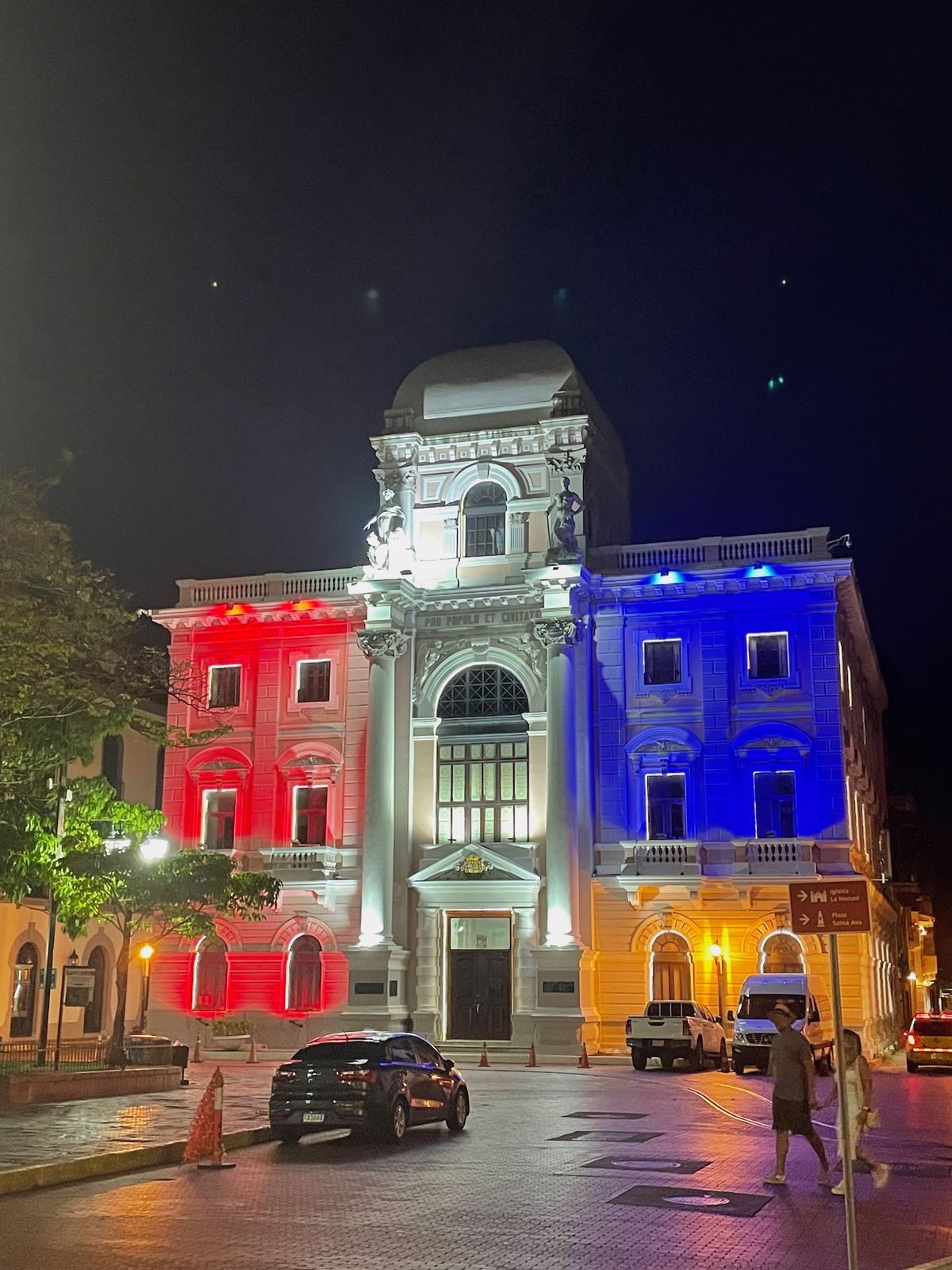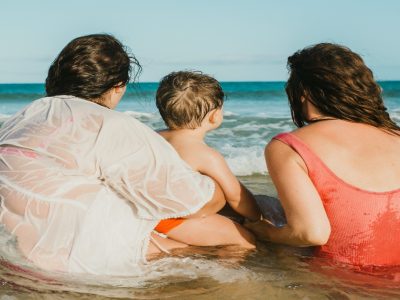Tourism HAS to care.
With planet Earth as its product, the travel and tourism industry has a great responsibility – and an existential interest – in stewarding and protecting its greatest asset. That’s why TravelPulse Canada was honoured to be invited to the recent Tourism Cares Global Meaningful Travel Summit in Panama, where the event theme was “connection, community and conservation.”
Now in its 21st year, Tourism Cares launched in 2003 with the goal of uniting the U.S. travel industry by bringing members together in volunteer initiatives. The first was a garbage clean-up at Ellis Island, New York, the entry point of millions of immigrants in search of the American dream. Later projects included assisting clean-up efforts after natural disasters, including Hurricane Katrina.
Over the years, the group has evolved into something different: an international non-profit organization with a mission to mobilize leading travel associations and companies to move travel in a positive direction – one that provides tangible benefits to local hosts.
Tourism Cares has expanded the scope of its activities, including providing conservation grants, awarding sustainable tourism scholarships, and holding conferences around the globe shining a spotlight on how tourism can be a force for good.
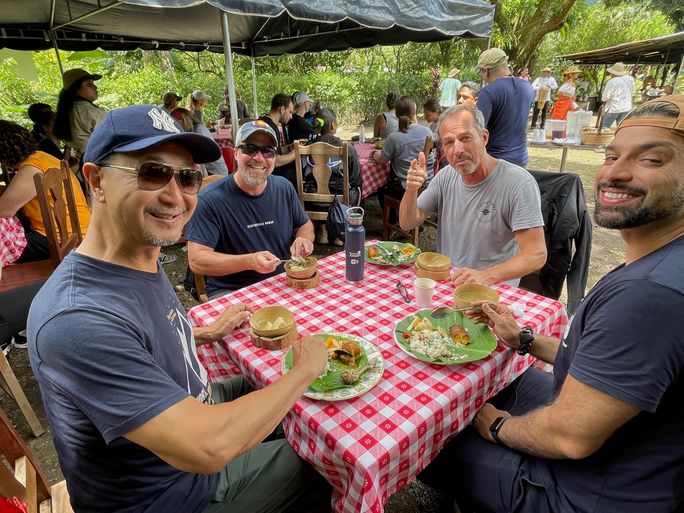
Tourism Cares CEO Greg Takehara (left), with Shaun Whitley, Travel Relations, Matt Berna, Intrepid Travel, and Aizazz Sheikh, Tour Radar. (Photo Credit: Bruce Parkinson)
CEO Greg Takehara says constant headlines about issues including climate change and over-tourism can lead to a feeling of helplessness. “The big picture can be overwhelming. You can get paralyzed by focusing on the negatives.” As a membership-based group, Tourism Cares offers a place where people passionate about sustainability can channel and amplify their efforts.
The group of 40 international attendees, along with strong representation from Visit Panama, Promtur Panama (the nation’s tourism promoter) and Panamanian tour operator Ancon Expeditions, brought plenty of positivity to the gathering. We explored local restaurants and attractions, enjoyed some of Panama’s breathtaking nature and soaked up culture by visiting social tourism enterprises where every dollar spent goes directly to local communities.
The diverse group included representatives of national tourism boards as far afield as Jordan, Thailand and Costa Rica, along with representatives from association including the USTOA, AAA – The Auto Club Group, the National Tour Association, Destinations International and the Adventure Travel Trade Association. Participating tour operators included the Globus Family of Brands, Intrepid Travel, Xanterra Travel Collection, Enchanting Travels, Tour Radar and Tauck Inc.

A wonderful closing night dinner at Las Catalinas in Anton. Chef Julio Pasco made it special. (Photo Credit: Bruce Parkinson)
Takehara says group members share “passion points” focused on tourism’s potential to more equitably distribute wealth, protect natural resources, share cultural practices and instill national pride.
“Panama is the perfect destination for a Meaningful Travel Summit. It’s the epitome of what we do,” Takehara told TravelPulse Canada.
In the years leading up to the Panama Meaningful Travel Summit – previous ones have been held in Colombia, Norway and Victoria, BC – Takehara helped judge a “community experiences” tourism contest in Panama. There were 25 entries, which had to be whittled down to five finalists and one winner.
“It was remarkable to see what they’re doing. They were so bright-eyed and keen to present their communities to visitors. This is what it’s all about – creating community understanding and lasting connections.”
Panama has put a sharp focus on sustainable tourism in recent years, with goals of protecting its precious natural resources and spreading the benefits of the visitor economy more broadly through a sustainable master plan.
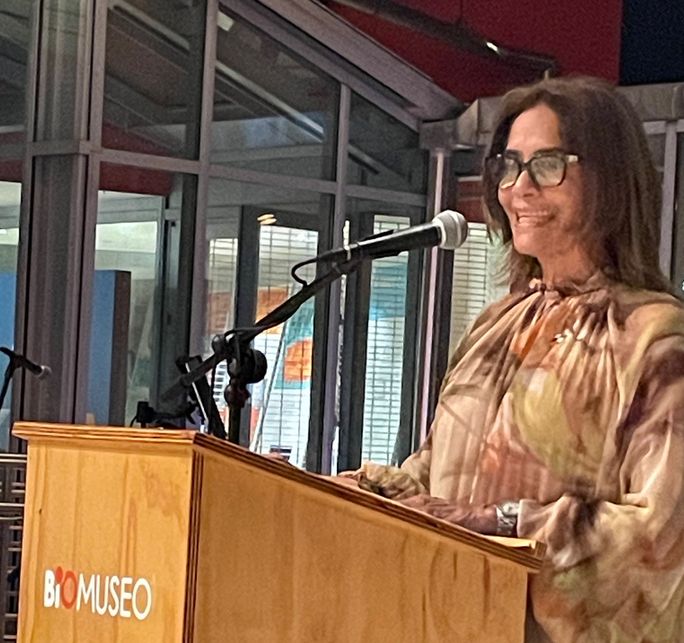
Panama’s Minister of Tourism Denise Guillén Zúñiga addresses the Tourism Cares Meaningful Travel Summit. (Photo Credit: Bruce Parkinson)
Panama’s Minister of Tourism Denise Guillén Zúñiga addressed the Tourism Cares group during an information session, affirming the country’s desire for its tourism industry to deliver a positive impact, while enabling visitors to truly engage with the country’s people, cultures and nature.
“We want to attract travellers who wish to make a difference while enjoying unique experiences,” Guillén Zúñiga said. “Tourism can be a catalyst for positive outcomes.”
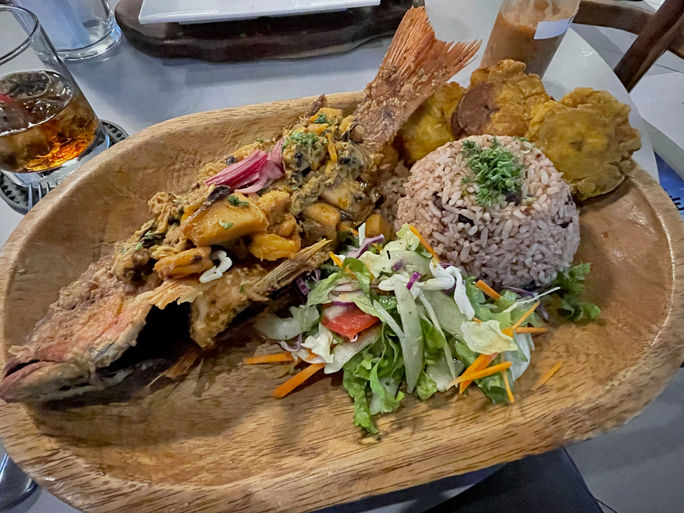
Food in Panama is fresh, delicious and reasonably priced. (Photo Credit: Bruce Parkinson)
Panama’s socio-economic tourism development plan for 2020-2025 was recognized by UNESCO as an industry best practice. Lorena Correal, Travel Trade & Strategic Alliances Director for Promtur Panama, says the approach is paying off.
While mass tourism is part of the country’s product – Sunwing and Transat bring planeloads of Canadians to Panama’s “Pacific Riviera” for example – Correal says that’s not the focus of tourism promotion efforts.
“We’re not investing marketing dollars in Sunwing and Transat,” says Correal. They will still bring those travellers and we’re happy to have them. We’re targeting discerning travellers and conscious travellers, willing to give up a bit of comfort for incredible experiences. These groups tend to spend more, do more and leave the place better than they found it.”
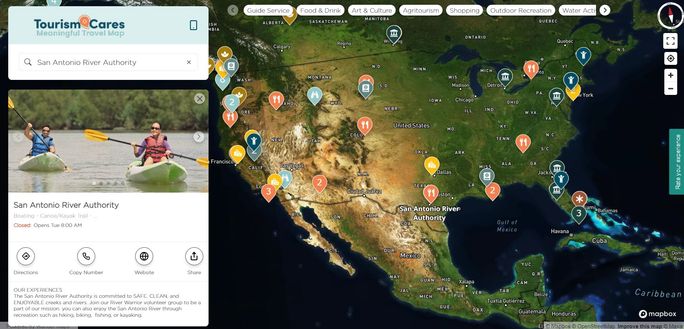
The Meaningful Travel Map offers an easy way to find vetted, responsible and sustainable experiences, accommodations and more. (Photo Credit: Tourism Cares)
The Tourism Cares Meaningful Travel Map has become a core component of the group’s work. It is a B2B tool that helps the travel trade and sustainability-minded travellers easily source organizations making positive social and environmental impacts in destinations. Current participants include Jordan, Thailand, Scotland, Tampa Bay, Kissimmee, Victoria, BC, Brazil’s Mato Grosso del Sul, Detroit and the Willamette Valley.
The interactive global map directly connects travel professionals with sustainable, community-led enterprises, products, services, accommodations, and tours, creating a competitive advantage to the growing consumer demand for sustainable travel.

Learning about Congo culture in Achiote, Panama. (Photo Credit: Bruce Parkinson)
Summit participants visited a number of places on Panama’s Meaningful Travel Map, learning about the UNESCO-designated Congo culture in Achiote and the fascinating history of the pintao, or painted Panama Hat, also recognized as ‘Intangible Cultural Heritage’ by UNESCO, in La Pintada. The group hiked to waterfalls and petroglyphs and watched cultural demonstrations featuring handcrafted costumes and evocative song and dance.
Another fascinating experience came during the group’s stay in Panama City’s Casco Antiguo, yet another UNESCO-designated site. A walking tour led by a group of young people known as Movimiento Cultural Identidad took the Tourism Cares group into neighbourhoods adjoining the world heritage site, to see how the restoration and improvement of the old city is causing gentrification and pushing out long-time residents.
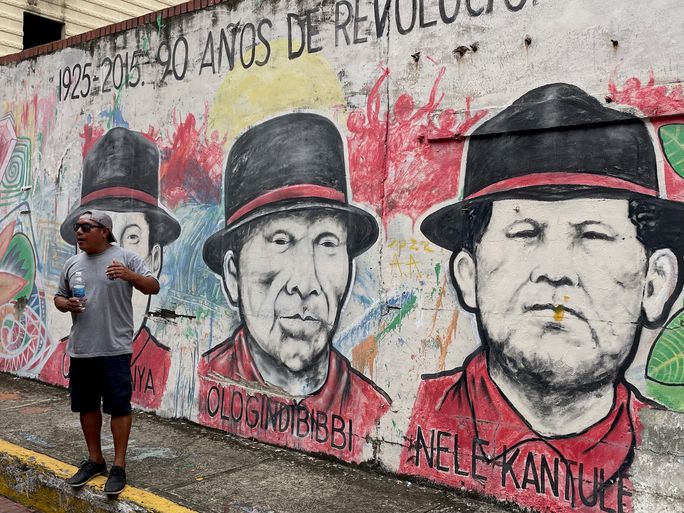
A walking tour of the neighbourhoods outside Panama City’s UNESCO World Heritage Site Casco Antiguo. (Photo Credit: Bruce Parkinson)
The tour was raw and the neighbourhoods we visited would not be recommended to tourists by hotel concierges or police. But it was fascinating to be led by young people who grew up there and have the respect of residents. We sampled at a fruit stand, popped into a barber shop and gawked at glassy luxury condos rearing up across the street from crumbling colonial buildings.
As Takehara mentioned earlier in this story, it’s easy to look at the global tourism industry and focus on its negative impacts. It’s a job hazard when you write about the industry. But it’s not the whole picture.
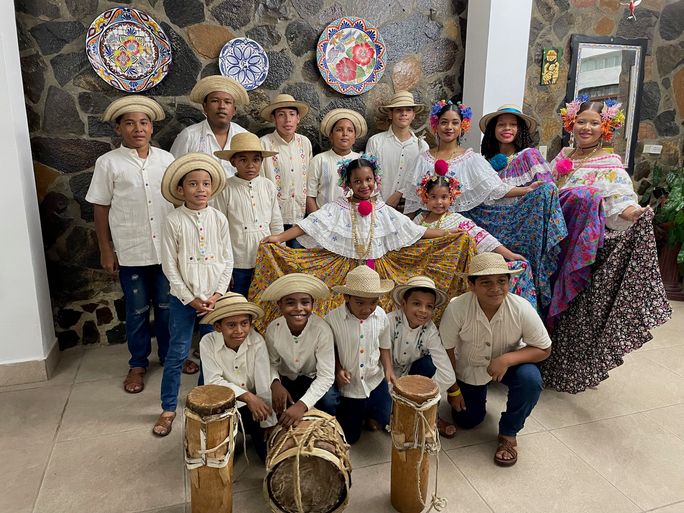
This group performed a folkloric dance unique to the town of Anton, Panama. (Photo Credit: Bruce Parkinson)
In the past few months I have visited Meaningful Travel Map locations in Jordan and Panama, and seen firsthand how social tourism enterprises provide obvious local benefits while delivering meaningful, enriching experiences to visitors. I’ve also travelled with G Adventures and seen the levelling impact of tourism when visitor money is spent exclusively locally.
These experiences make this excerpt from the Tourism Cares vision statement feel more achievable:
“Our vision is one of economic opportunity, equity, and climate action through the transformation of the travel industry: host communities take centre-stage; technology enhances inclusivity and accelerates sustainable operations; and authentic, responsible experiences become the default.”
Or as Julie Freeman, EVP Public Relations, Americas, for MMGY Global aptly put it in a Meaningful Travel Summit presentation: “We should look for the day we don’t call it sustainable tourism anymore – we just call it tourism.”

